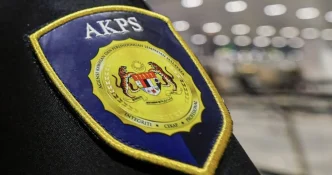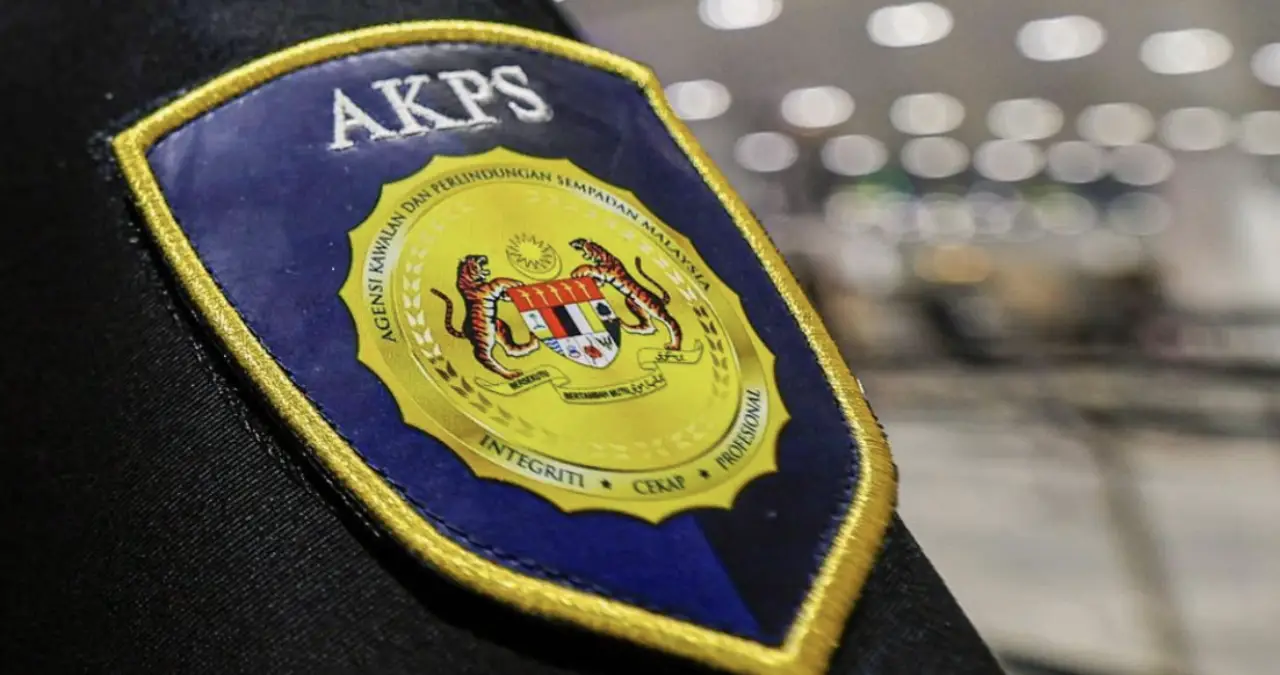Two foreign nationals were detained at Kuala Lumpur International Airport (KLIA) on Sunday after failing to produce valid entry documents during a routine immigration screening. The incident, which occurred around 5 pm, has once again spotlighted Malaysia’s stringent border control measures, as the country balances a booming tourism sector with national security concerns.
Unusual Security Stamps Trigger Detention
According to reports from Malaysian authorities, the two men, aged 30 and 40, were stopped by officers from the Malaysian Border Control and Protection Agency (AKPS) after suspicious security stamps were detected on their passports. Initial checks revealed that the stamps did not align with standard immigration markers, prompting further scrutiny. A subsequent search of Malaysia’s immigration database confirmed that there were no entry or exit records for either individual, raising immediate red flags.
Under the Immigration Act of Malaysia, officers are authorized to detain foreign nationals under reasonable suspicion of violating entry regulations. The men, whose nationalities are yet to be officially confirmed but are suspected to be Indian and Chinese, were taken into custody for further investigation. This swift action underscores the vigilance of Malaysian authorities in enforcing immigration laws, particularly at major entry points like KLIA, which serves as a critical gateway for millions of international travelers each year.
A Pattern of Enforcement at KLIA
The detention of the two men is not an isolated incident. Just last month, hundreds of foreign nationals were denied entry at KLIA for failing to meet visa and documentation requirements. Many of these travelers were turned away for lacking proper travel visas or proof of onward travel, reflecting a broader wave of enforcement actions aimed at tightening border security. These measures come as Malaysia navigates the complexities of post-pandemic travel, with authorities placing a renewed emphasis on compliance with entry protocols to safeguard national security. In March 2025, 15 Bangladeshi men posed as cricketer players, and possessed a fake tournament organisation letter. They were detained at KLIA while attempting entry into Malaysia and later deported. In another attempt to breach the border, several foreigners were caught in June 2025, attempting to bypass immigration checks at KLIA2 by changing clothes in the airport’s transit area in a bid to disguise themselves as newly arrived passengers.
Malaysia’s commitment to strict immigration policies is evident in its ongoing efforts to prevent illicit activities at its borders. The country has faced challenges in the past with forged documents and unauthorized entries, prompting a crackdown on violations. While such enforcement actions are crucial for maintaining regulatory integrity, they also highlight the challenges faced by travelers who may be unaware of the stringent requirements or unable to produce the necessary paperwork upon arrival.
Tourism Boom Amid Tightened Controls
Despite the rigorous enforcement of immigration laws, Malaysia’s tourism sector continues to flourish. In the first four months of 2025, the country welcomed 13.3 million international arrivals, marking a 21% increase compared to the same period in the previous year. This surge has been driven by Malaysia’s appeal as a global tourism hub, with its vibrant cities, rich cultural heritage, and stunning natural landscapes drawing visitors from around the world.
A significant portion of these arrivals—approximately 70%—are from mainland China, placing additional pressure on Malaysia’s immigration system to manage the influx effectively. The government has promoted luxury tourism, eco-tourism, and cultural experiences to position Malaysia as a premier destination, yet it remains resolute in ensuring that this growth does not compromise security. The economic benefits of tourism are undeniable, but incidents like the recent detentions at KLIA serve as a reminder of the delicate balance between welcoming visitors and enforcing strict border controls.
Enhancing Border Security Infrastructure
To address the rising volume of international travelers and the increasing sophistication of travel-related challenges, Malaysia has invested heavily in upgrading its border control infrastructure. New technologies, including artificial intelligence systems and electronic visa processing, have been introduced to streamline entry procedures while minimizing the risk of breaches. These advancements aim to improve efficiency at busy hubs like KLIA, where long queues and manual checks can lead to delays and oversight issues.
In addition to technological upgrades, Malaysian authorities have launched public awareness campaigns to educate foreign visitors about the importance of adhering to immigration regulations. These efforts are designed to reduce the incidence of unintentional violations, such as arriving without the correct documentation, which can result in detention or denial of entry. By combining innovation with education, Malaysia seeks to create a more seamless travel experience without sacrificing the integrity of its borders.
Balancing National Security and Global Appeal
The recent detentions at KLIA raise important questions about the impact of strict immigration enforcement on Malaysia’s reputation as a tourist-friendly destination. While such measures are essential for national security, they can also create apprehension among potential visitors who fear delays or rejection at the border. For many, the prospect of detention due to a minor paperwork error is a significant deterrent, particularly in an era when travel is already fraught with post-pandemic uncertainties.
Yet, Malaysia’s government remains steadfast in its approach, prioritizing the enforcement of immigration laws to prevent unlawful entries and protect the country’s interests. This stance is particularly critical given the growing number of international arrivals and the associated risks of trafficking, smuggling, and other cross-border crimes. Striking a balance between openness and security is no easy task, but it is a necessary one for a nation that aspires to be both a global tourism leader and a model of regulatory compliance.
Implications for Travelers and Policy
For travelers planning to visit Malaysia, the recent incident serves as a stark reminder of the importance of meeting all entry requirements. Valid passports, appropriate visas, and proof of onward travel are non-negotiable, and failure to comply can result in immediate detention or deportation. Tourists are advised to familiarize themselves with Malaysia’s immigration policies well in advance of their trip to avoid unnecessary complications at the border.
From a policy perspective, the ongoing enforcement actions at KLIA and other entry points signal a broader trend of tightening immigration controls across the region. As South East Asian nations recover from the economic impacts of the pandemic, many are grappling with the dual challenge of revitalizing tourism while safeguarding their borders. Malaysia’s approach may serve as a blueprint for other countries in the region, though it also raises questions about the long-term sustainability of such stringent measures in an increasingly interconnected world.
Looking Ahead: A Delicate Equilibrium
As Malaysia continues to enhance its border control measures and welcome record numbers of tourists, the interplay between security and hospitality will remain a defining issue. The detention of foreign nationals at KLIA is a microcosm of the broader challenges facing the country as it navigates its role on the global stage. While the government’s commitment to immigration enforcement is unwavering, its ability to maintain a welcoming image for international visitors will be equally critical in shaping the future of its tourism industry.
For now, the focus remains on ensuring that travelers are well-informed and prepared to meet Malaysia’s entry standards. As the nation refines its policies and infrastructure, the hope is that such incidents will become less frequent, paving the way for a travel experience that is both secure and seamless.















